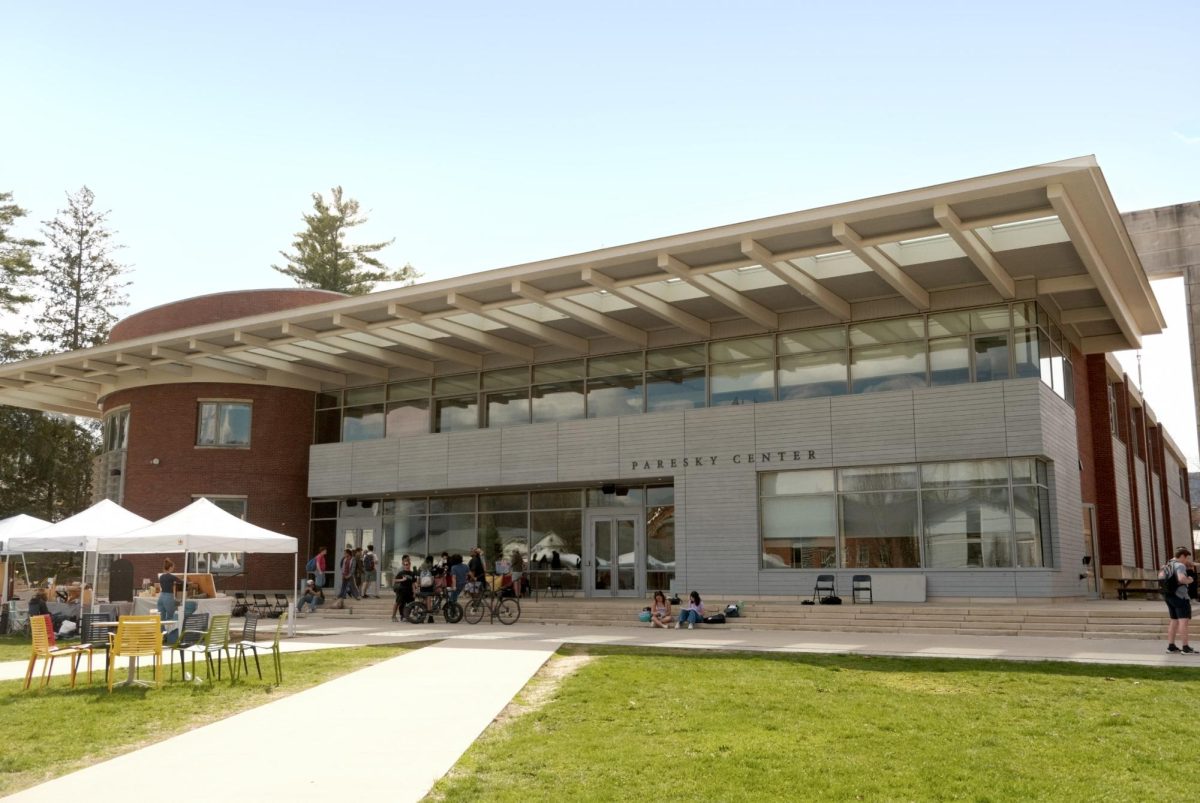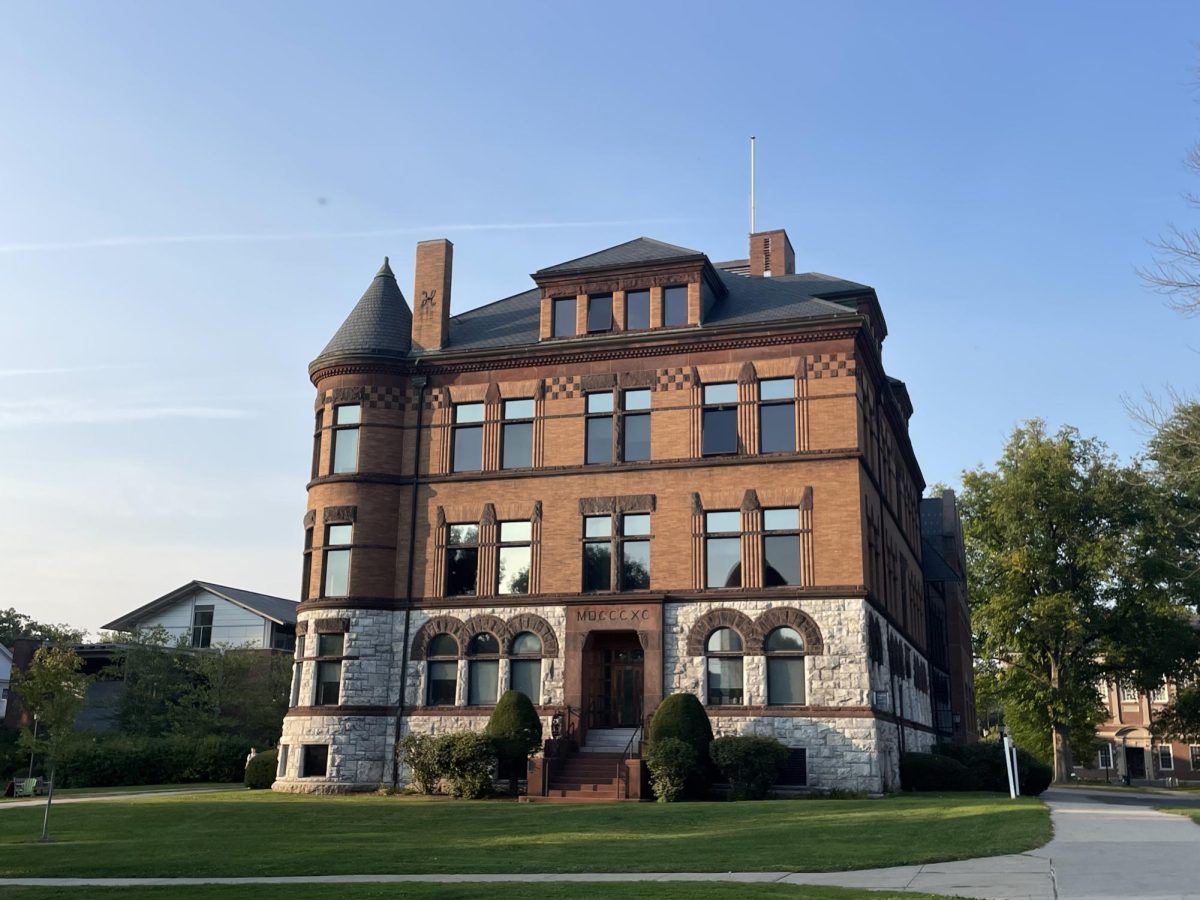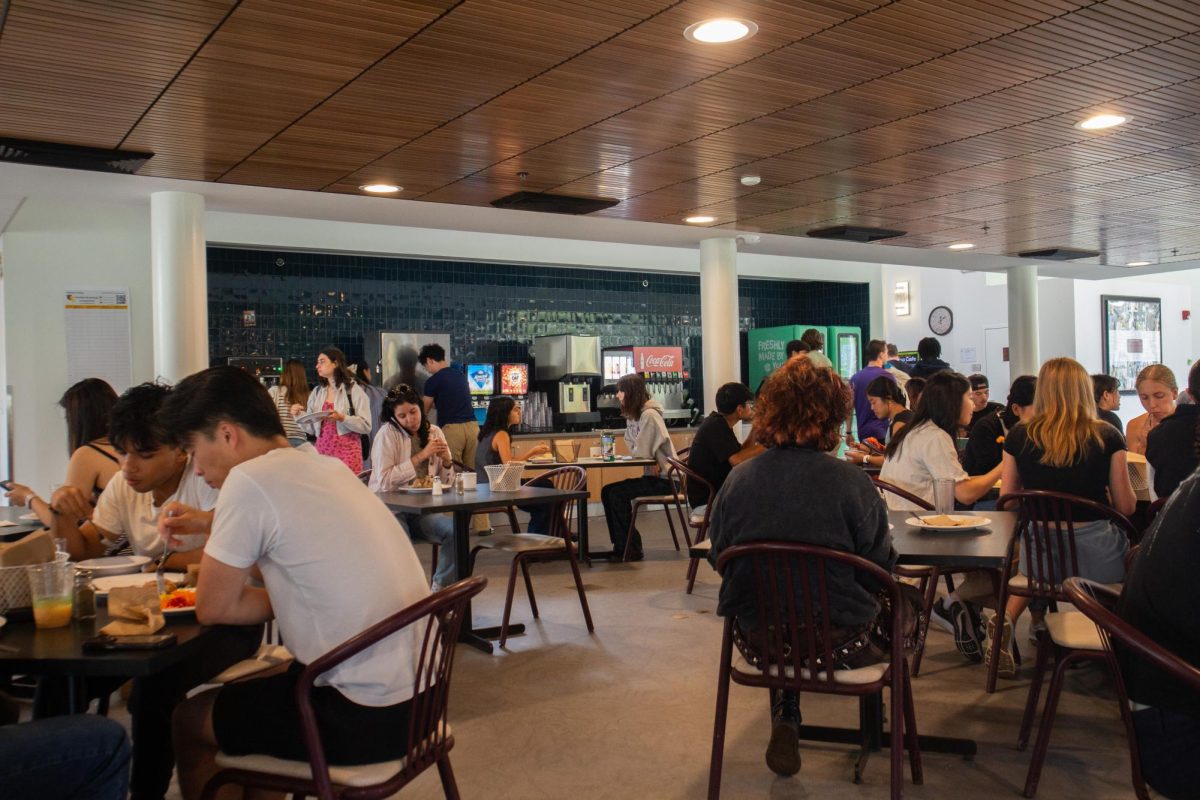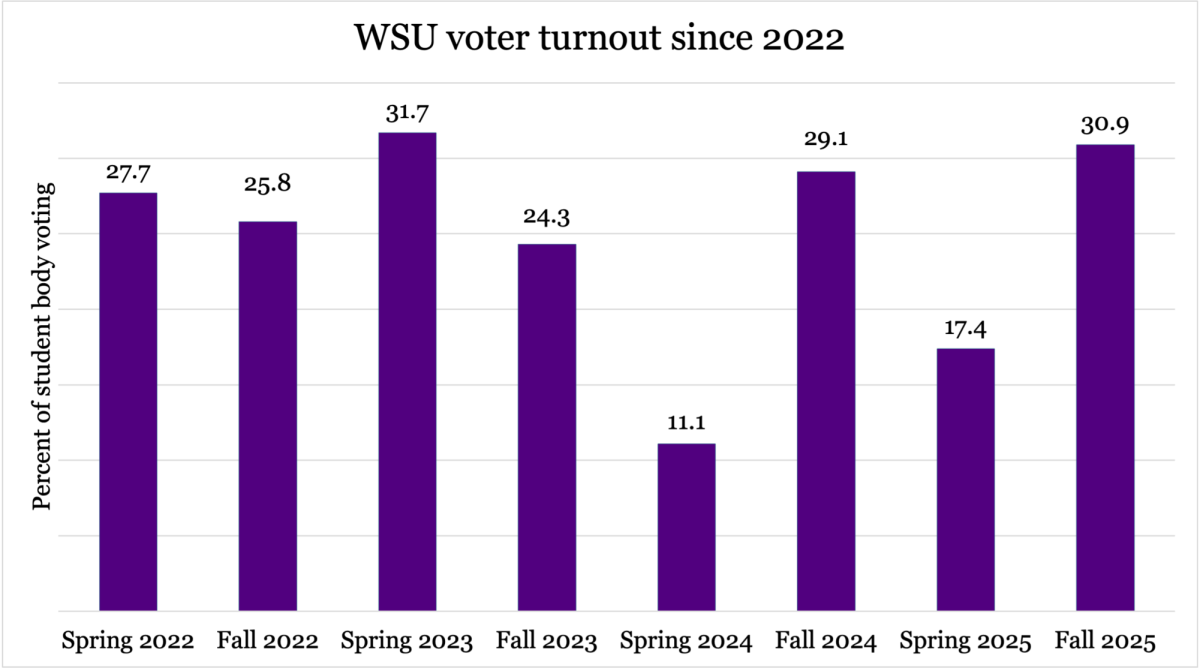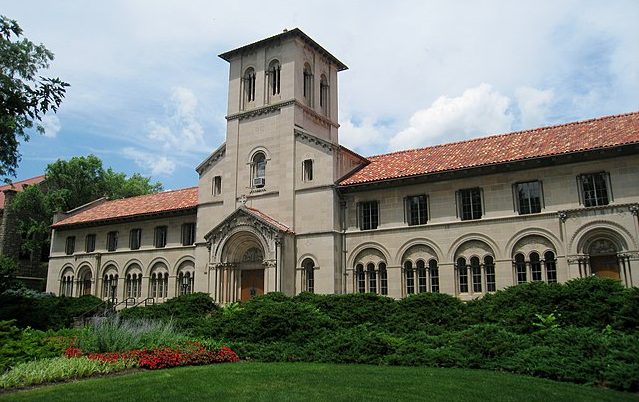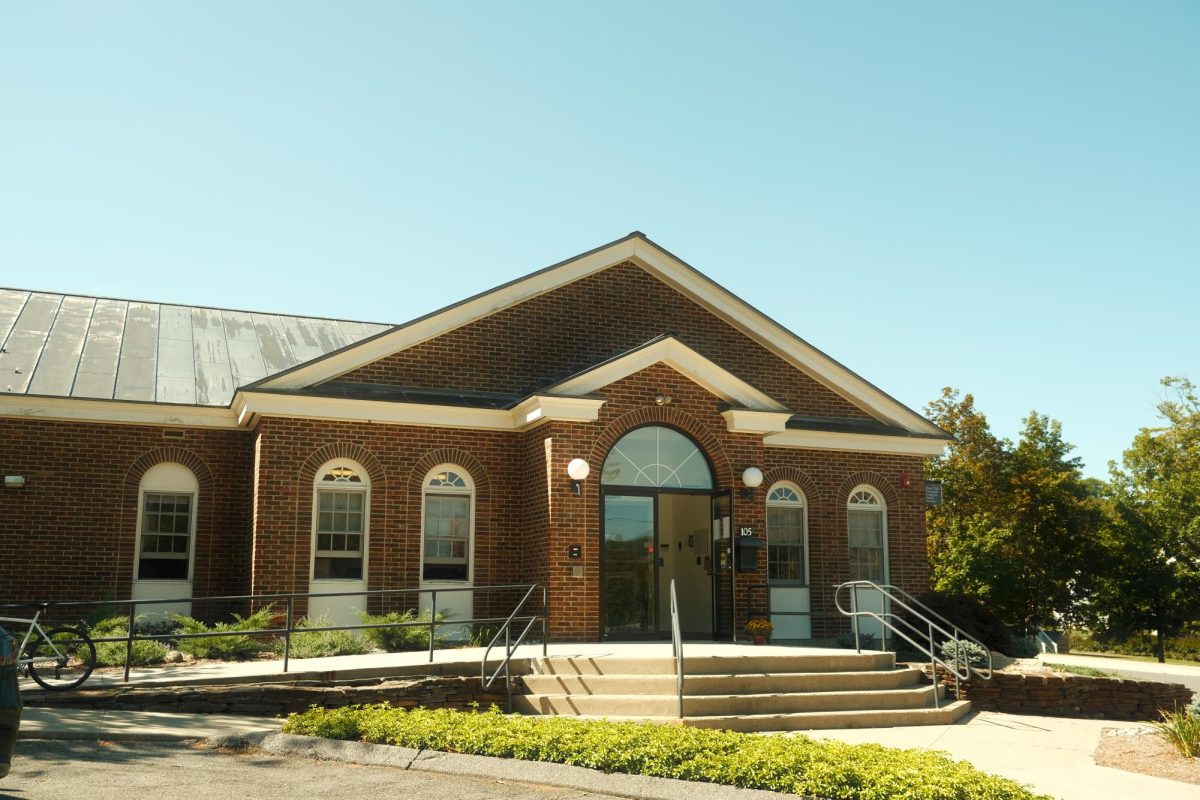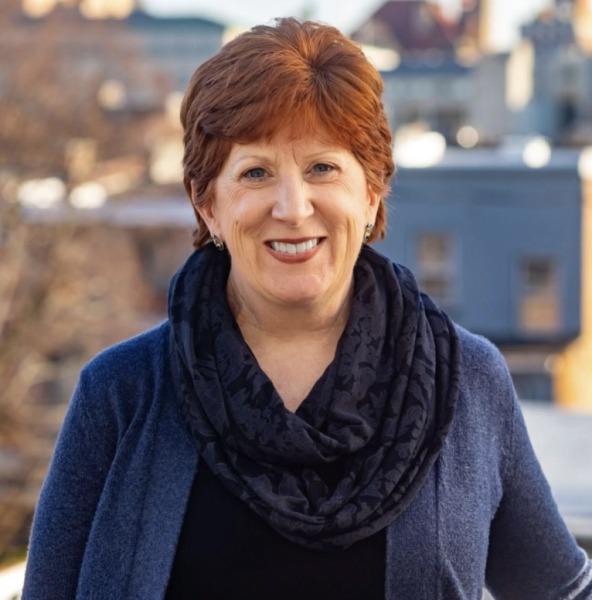
Mayor Kathy Sheehan of Albany, N.Y., delivered the lecture at the Center for Environmental Studies’ (CES) weekly Log Lunch last Friday, April 19. In her talk, entitled “Climate Justice: A Case Study on Creating Affordable Renewable Energy in a Disadvantaged Neighborhood,” Sheehan discussed the city’s efforts to improve sustainability and renewable energy while mitigating cost burden concerns.
At the lunch, Sheehan spoke about the city’s revitalization of Steamboat Square, a planned public housing community where at least 330 affordable housing units powered by geothermal energy are slated to be built by 2026. The project was funded through both public and private sources, though Sheehan emphasized the significant funding provided by the American Rescue Plan, the $1.9 trillion economic stimulus bill passed by Congress in March 2021.
The apartment units will feature both geothermal heating and cooling. Although policies in colder climates typically focus on enforcing apartment heating guidelines, Sheehan emphasized the importance of cooling infrastructure in the revitalization efforts as hotter summers and longer heat waves become more frequent in Albany as a result of the warming climate.
In her talk, Sheehan discussed the challenge of grappling with climate change in a city with old infrastructure, noting that she herself lives in a house built in 1857. Converting just one old house into a climate-friendly unit can cost tens of thousands of dollars, and funding those efforts in low-income areas is a challenge due to the nature of city funding, Sheehan said during the talk. The mayor’s only revenue-raising lever is property taxes, the burden of which can be passed on from landlords to tenants, potentially exacerbating the inequality that progressive policies seek to end. With this risk, Sheehan underscored the importance of state and federal funding for climate policies.
Sheehan described these efforts as preparation for a “new normal” of more extreme weather conditions as a result of climate change. In Albany, this preparation has included flood mitigation, conversion of city operations to renewable energy, and tree planting campaigns. “It’s a big price tag, but we have to do this,” Sheehan said. She highlighted the social justice dimensions of climate solutions, noting that climate change disproportionately impacts low-income communities with extreme, destructive weather and that she hopes to integrate those considerations into climate policy.
“I appreciated her advocacy for community work, which I feel like is a big part of any necessary environmental policy,” CES Research Assistant Emma Sandstrom ’26 said after attending the talk. “It’s cool to see the actual repercussions of things people are working on.”
Sheehan also spoke about the impact federal and state politics have on local change, emphasizing what she believes to be the importance of President Joe Biden’s reelection on effective environmental policy. “If we don’t have consistency at the federal level, we will lose four years of progress,” Sheehan said in the talk. “It won’t just be inconvenient — it will be devastating.”
In an interview with the Record, Sheehan further discussed the relationship between local and federal government, emphasizing the role of mayoral lobbying. Sheehan is the outgoing president of the New York Conference of Mayors, an advocacy group for the cities and villages in New York State. She is also an active member of the United States Conference of Mayors, a bipartisan advocacy group for mayors. “We decide every year on what issues and what policy positions we’re going to be taking with respect to all kinds of issues, and we advocate as a group, and that involves going to Washington, [D.C.], and advocating,” she said. “One mayor is great, but when we can have 1,000 mayors sign onto a letter urging a certain tax policy with respect to renewables, it’s far more impactful.”
Sheehan announced in February that she will not seek a fourth term as mayor. Although she advocated for consistency of goals across tenures in government in her talk, the mayor also emphasized the importance of new leadership to the Record. “My way of doing things is not the only way of doing things, and I’m proud of what we’ve been able to accomplish,” Sheehan said. “I’m really proud of my team. I think it’s really important to have new leadership and younger leadership. It’s time to make sure that the younger generation is able to step up and take these leadership positions, because that experience is really important.”
Associate Director of the CES and Lecturer in Environmental Studies Sarah Gardner, who runs the Log Lunch program, said she was thrilled to be able to bring a local politician in to speak at Log Lunch. Gardner said she tries to invite speakers versed in topics that run the gamut of environmental studies. “It’s important for students to learn about the challenges of being a mayor of a small city,” she wrote in an email to the Record. Since the implementation of many state and federal environmental laws occurs at the municipal level, Gardner said, she wanted students to learn about the importance of local politics to environmental studies.
CES Research Assistant Nicholas Bollman ’26 underscored the importance of inviting politicians to speak at Log Lunch. “I think it’s pretty useful to get a bigger breadth of people who might be involved in the environmental field generally,” he said after attending the talk. “You get people whose entire job is to do climate research, and having those alongside people who are actually tasked with implementing climate solutions is cool to see.”









